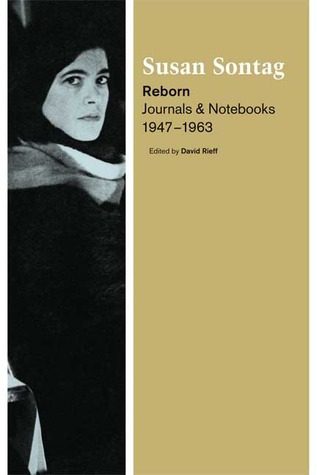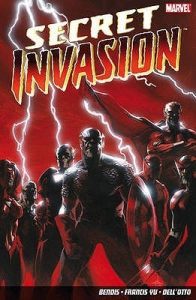Title: Reborn: Journals and Notebooks, 1947-1963
Author: Susan Sontag
Published December 9, 2008
318 pages, Hardcover
ISBN: 9780374100742 (ISBN10: 0374100748)
Rating: 4.01
Overview
Reborn: Journals and Notebooks, 1947-1963 by Susan Sontag is a captivating and thought-provoking collection of the writer’s early works. From her time as a university and graduate student, to her emergence as a participant in the artistic and intellectual life of New York City, this book presents a kaleidoscopic self-portrait of one of America’s greatest minds.
Sontag’s voracious curiosity and appetite for life is evident in every page, as we witness her complex self-awareness, encounter the writers who informed her thinking, and explore the profound challenge of writing itself. With inimitable detail, Reborn is a must-read for anyone interested in the evolution of a brilliant mind.
About the Author
Susan Sontag was born in New York City in 1933 and grew up in Tucson, Arizona. She attended high school in Los Angeles and earned her B.A. from the College of the University of Chicago.
She pursued graduate studies in philosophy, literature, and theology at Harvard University and Saint Anne’s College, Oxford.
Sontag authored four novels, including The Benefactor, Death Kit, The Volcano Lover, and In America. She also wrote a collection of short stories titled I, etcetera, several plays such as Alice in Bed and Lady from the Sea, and nine nonfiction works, starting with Against Interpretation.
Her other nonfiction works include On Photography, Illness as Metaphor, Where the Stress Falls, Regarding the Pain of Others, and At the Same Time. In 1982, Farrar, Straus & Giroux published A Susan Sontag Reader.
Sontag directed four feature-length films, including Duet for Cannibals and Brother Carl, both made in Sweden. She also directed Promised Lands, made in Israel during the October 1973 war and Unguided Tour, based on her short story, made in Italy.
Alice in Bed has been produced in the United States, Mexico, Germany, and Holland, while Lady from the Sea has been produced in Italy, France, Switzerland, Germany, and Korea. Sontag directed plays in the United States and Europe as well.
She staged Beckett’s Waiting for Godot in besieged Sarajevo in the summer of 1993, where she spent much of the time between early 1993 and 1996 and was made an honorary citizen of the city.
Sontag was also a human rights activist for more than two decades. She served as president of the American Center of PEN from 1987 to 1989, an international writers’ organization dedicated to freedom of expression and the advancement of literature.
From this platform, she led several campaigns on behalf of persecuted and imprisoned writers.
Sontag’s stories and essays appeared in newspapers, magazines, and literary publications worldwide, including The New York Times, The New Yorker, The New York Review of Books, The Times Literary Supplement, Art in America, Antaeus, Parnassus, The Threepenny Review, The Nation, and Granta. Her books have been translated into thirty-two languages.
Sontag received numerous honors throughout her life, including the 2003 Peace Prize of the German Book Trade, the 2003 Prince of Asturias Prize, the 2001 Jerusalem Prize, the National Book Award for In America (2000), and the National Book Critics Circle Award for On Photography (1978). She received the Malaparte Prize in Italy in 1992 and was named a Commandeur de l’Ordre des Arts et des Lettres by the French government in 1999.
She had previously been named an Officier in the same order in 1984. Sontag was also a MacArthur Fellow between 1990 and 1995.
Sontag passed away in New York City on December 28, 2004.
Editoral Review
Reborn: Journals and Notebooks, 1947-1963 is a compelling and intimate collection of the journals and notebooks of Susan Sontag, a prominent American essayist, novelist, and cultural critic. Published posthumously in December 2008, this book provides readers with a rare glimpse into Sontag’s creative process, personal life, and intellectual development during a critical period of American history.
Sontag’s journal entries cover a wide range of topics, from her daily routines and personal relationships to her reflections on art, politics, and literature. The book is divided into four sections, each representing a different period in Sontag’s life and career.
The first section covers her adolescence and early adulthood, while the second section focuses on her travels in Europe and her early success as a writer. The third section deals with her battles with cancer and her eventual recovery, while the fourth section includes notes and ideas for Sontag’s final works, such as her short story “The Way We Live Now” and her essay “Regarding the Pain of Others.”
Throughout the book, Sontag’s writing is candid, introspective, and thought-provoking.
She is unafraid to express her doubts, fears, and insecurities, and her observations on life and culture are as relevant today as they were when she wrote them. Sontag’s journals also offer valuable insights into her creative process, showing readers how she developed her ideas and honed her craft over time.
One of the strengths of Reborn is its raw honesty. Sontag’s journals are not edited or filtered, and readers get a sense of her unvarnished thoughts and feelings.
She writes about her relationships with both men and women, her struggles with depression and illness, and her ongoing search for meaning and purpose in life. Sontag is willing to explore difficult and controversial topics, such as the nature of beauty, the ethics of war, and the role of the artist in society.
Another strength of the book is its historical and cultural significance. Sontag was a key figure in the intellectual and artistic movements of the 1950s and 1960s, and her journals provide a valuable record of this period.
They also shed light on the experiences of women writers and thinkers during a time of great social and political change. Despite these strengths, Reborn is not a perfect book.
Some readers may find Sontag’s writing dense or difficult to follow, and her journals can be disjointed and fragmented at times. Additionally, the book may not be accessible or relevant to readers who are not familiar with Sontag or her work.
Overall, however, Reborn: Journals and Notebooks, 1947-1963 is a valuable and compelling book. It offers readers a unique perspective on the life and work of a remarkable writer and intellectual, and it provides insights into the creative process and the complexities of the human experience.
This book is recommended for fans of Sontag’s work, as well as for anyone interested in the history of American culture and intellectual life. On a scale of 1-5, I give this book a 4.5 for its insightful and thought-provoking contents.



